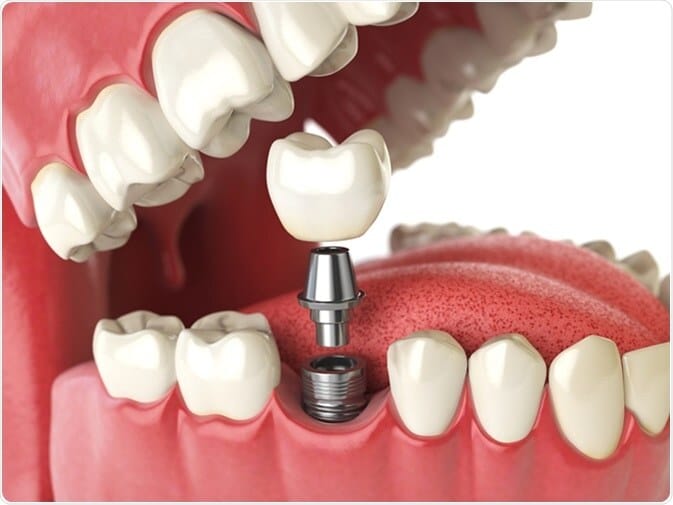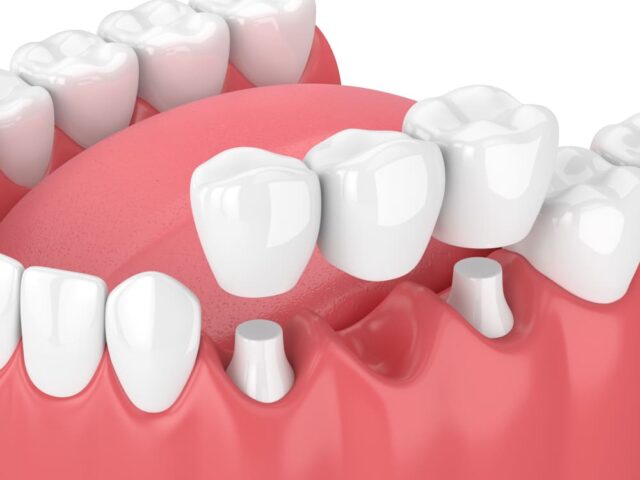Dental implants have undergone significant advancements since their introduction, becoming a popular solution for millions worldwide. These implants work as artificial tooth roots, providing a sturdy base for replacement teeth that closely resemble natural teeth in looks, feel and functionality. With dental implants, patients can restore their self-confidence, self-esteem and quality of life.
The demand for dental implants has been growing significantly, as has the importance of dental implant advancements. The latest dental implant technology improves the long-term success and reliability of these tools and addresses some of the challenges associated with traditional methods. The constant development of new dental implant technologies promises a better future for dental care and a more pleasant experience for patients.
Below, we explore the latest advances in implant technology and their implications for the future of dental care. Let’s begin.
The Rise of Dental Implants
Advancements in dental care have led to the development of the dental implants we use today. While there is evidence of attempts to replace missing teeth with different materials dating back to ancient civilizations, it was in the 20th century that modern dental implants became possible.
In 1952, Per-Ingvar Brånemark, a Swedish orthopedic surgeon, successfully placed the first titanium dental implant in a patient. The significance of this event lies in titanium’s unique ability to fuse with human bone, a process known as osseointegration. This principle paved the way for modern dental implantology.
Dental implant technologies have undergone significant advancements in recent decades, resulting in improvements in implant materials, design, and surgical techniques. One of the most notable advancements in dental implant technology is the ability to load implants, which shortens treatment time immediately. This method involves placing a temporary crown on the same day as the surgical placement of the implant instead of waiting for several weeks or months to integrate with the bone fully. Furthermore, technological advancements have made it possible to create accurate and custom dental implants using computer-aided design and manufacturing, resulting in a more precise fit and better aesthetic outcomes.

Advantages of Dental Implants
Dental implants offer several advantages over traditional dentures and bridges, making them an increasingly popular choice for tooth replacement. Some of these advantages include:
- Improved appearance and comfort: Dental implants are designed to look, feel and function like natural teeth, providing a more comfortable and aesthetically pleasing alternative to dentures or bridges.
- Enhanced functionality: Unlike dentures, dental implants do not cause discomfort during eating or speaking. They also provide a more secure and stable foundation, allowing for more natural biting and chewing functions.
- Preservation of bone and surrounding teeth: Dental implants help preserve the jawbone and prevent further bone loss, a common issue for patients with missing teeth. Moreover, dental implants do not require the grinding down of adjacent healthy teeth, as conventional tooth-supported bridges do.
- Durability and longevity: Dental implants are highly durable and, with proper care, can last a lifetime. This quality contrasts with traditional dentures and bridges, which may need frequent adjustments or replacements.
- Improved oral hygiene: Dental implants allow for easier cleaning and better access to surrounding teeth, ultimately leading to improved oral hygiene.
Dental implants have significantly advanced since their inception, providing a reliable and effective solution for tooth replacement. With the continuous evolution of dental implant technologies and advancements in dental care, patients can expect even better outcomes, comfort and functionality from dental implants in the coming years.

Latest Advances in Implant Technology
Below is an overview of the latest advances in implant technology, offering insights into the developments shaping the future of this medical field.
Advanced Materials and Coatings
Improved Biocompatibility
Biocompatibility is an essential factor for the success of implants, as it ensures that the body does not react adversely to the implant. Recent technological advancements have led to the development of new and improved materials and coatings that enhance biocompatibility. For instance, titanium is increasingly used as an alternative to stainless steel for implants and ceramic coatings are applied to metal implants to reduce the risk of inflammation, corrosion and overall implant failure.
Enhanced Osseointegration
Osseointegration is the process of an implant integrating with the surrounding bone. This is crucial for the stability and longevity of the implant. Advanced materials and coatings have been developed to promote faster and more effective osseointegration. Implants with porous surfaces are an example of this, as they encourage bone growth into the implant’s structure, resulting in an improved bond between the bone and the implant.
Surface Modifications for Better Bacterial Resistance
Infections are a frequent problem that can arise after the implantation of medical devices, which can be harmful to both the patient and the lifespan of the implant. To address this issue, researchers have developed surface modifications for implants that can resist bacterial colonization more effectively. These modifications include antimicrobial coatings and patterns on the implant surfaces, which can reduce the probability of infection and improve patient outcomes.
Digital Advancements in Implant Dentistry
Digital Impressions
Digital impressions have revolutionized the planning and manufacturing of dental implants. Digital impression systems capture accurate images of the patient’s mouth, eliminating the need for traditional methods such as molding trays filled with impression materials. This technology improves patient comfort and reduces the potential for errors during the implant process.
Computer-Aided Design and Computer-Aided Manufacturing (CAD/CAM)
CAD/CAM technology allows for the precise design and production of dental implants. This advanced software lets dentists virtually plan implant placement and create surgical guides for precise implant positioning. Furthermore, dental technicians use the patient’s digital data to develop custom implant prostheses, ensuring a perfect fit and reducing the risk of complications.
3D-Printing
In recent years, 3D printing has become a valuable tool in implant dentistry. It allows for fabricating surgical guides, models and implant components as and when needed. Through 3D printing, the implant process can be significantly accelerated, and the treatment can be customized more effectively. Moreover, the overall cost of implant treatment can also be reduced by using this technology.
Guided Surgery and Robotics
Robotic-guided surgery techniques, which utilize 3D imaging and surgical guides, have greatly enhanced the accuracy and precision of implant placements. These advanced methods enable dentists to plan and prepare for the implant procedure virtually, ensuring optimal positioning and reducing the risk of complications. Patients benefit from less invasive procedures, quicker recovery times and improved outcomes.
Robotics has started to play a role in implant procedures. Robotic-guided dental implant systems can assist in surgery, enabling more precise drilling and placements.
All-on-Four Technique
The All-on-Four technique is a revolutionary approach to full-arch tooth replacement, which involves placing four strategically placed implants in the upper or lower jaw, onto which a fixed full-arch prosthesis is attached. This procedure has several benefits, including less invasive surgery, faster recovery times and immediate functionality of the new teeth.
For patients suffering from full arch tooth loss, the All-on-Four technique offers a life-changing solution. This method enables patients to regain their smile, restore function and improve their overall quality of life, often more quickly and with less discomfort than traditional implant methods. As a result, the All-on-Four technique is rapidly becoming the standard of care for full arch tooth replacement.
Embrace the Future of Dental Care with Archpoint Implant Dentistry
The latest dental implant technology has revolutionized how we approach dental care. With impressive innovations, patients can now experience shorter treatment times, less post-operative pain and significant improvements in the outcome of their treatments.
At Archpoint Implant Dentistry, we pride ourselves on staying at the forefront of these advancements and utilizing the latest dental implant technology to provide our patients with the highest quality care possible. Our skilled and experienced team is dedicated to making your dental implant journey as seamless and enjoyable as possible, ensuring you achieve the best possible results.
Schedule an appointment today.








